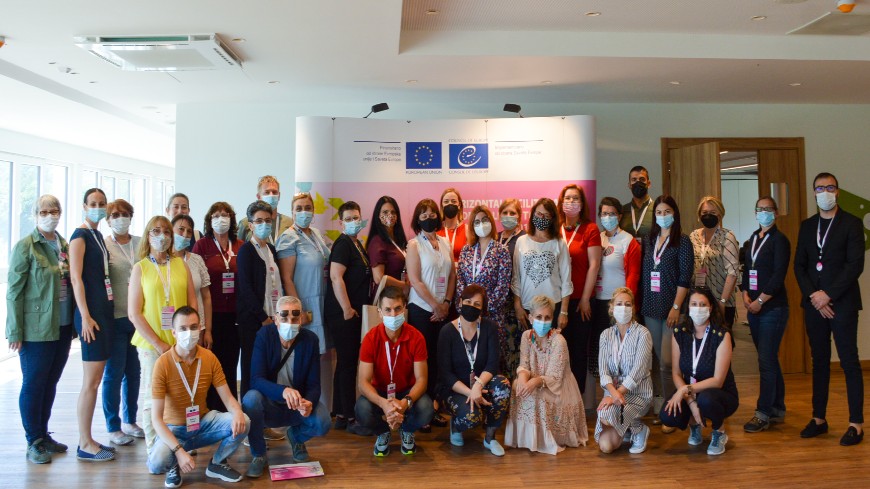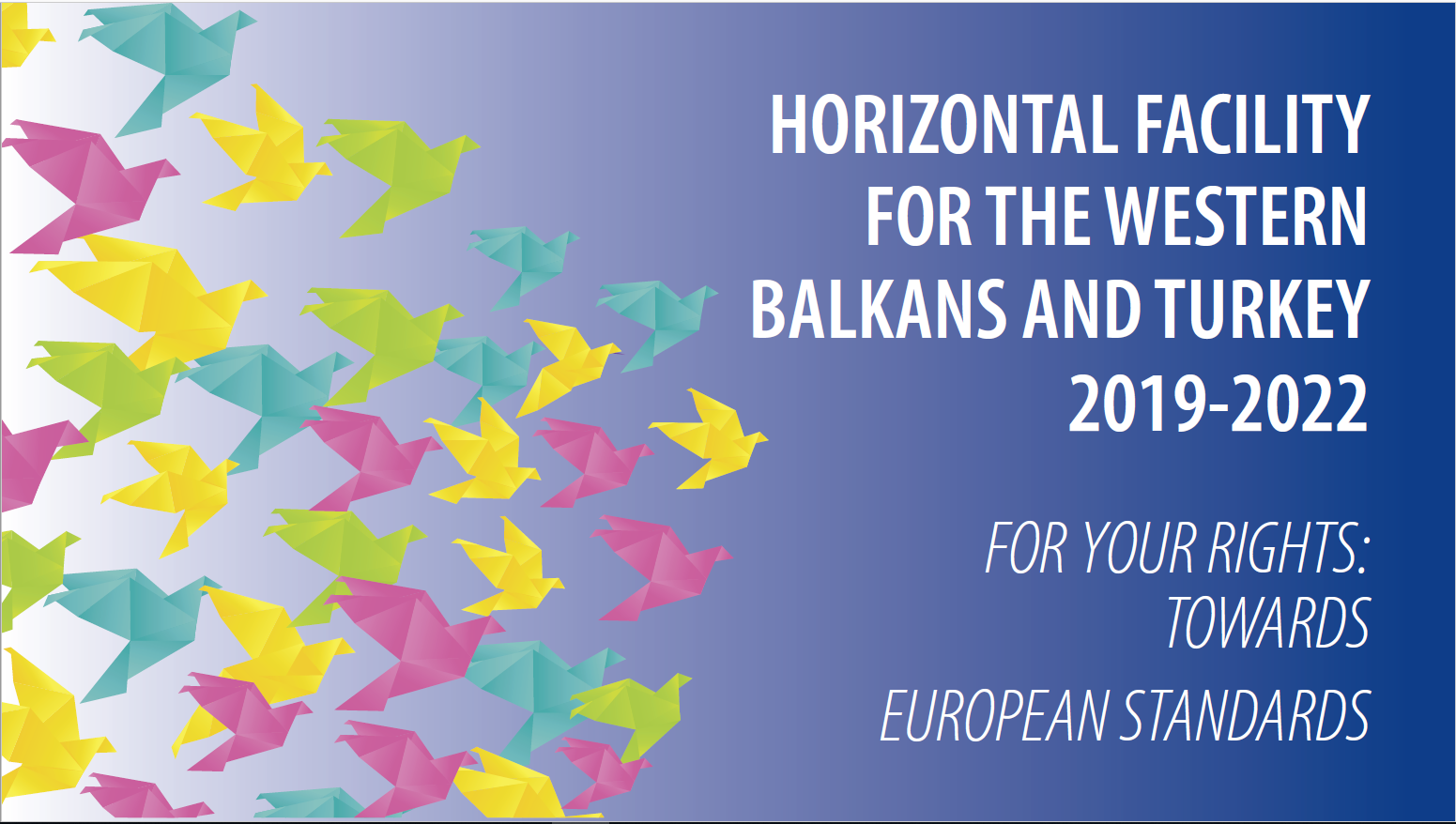More than 50 teachers and representatives from 20 project schools had the chance to meet and exchange ideas in the first Peer Learning event that took place from 7 to 11 June in Vrdnik, Serbia. School representatives were joined by the Ministry of Education, Science and Technological Development and the Institute for Education Improvement.
During the event, participants worked with their mentors and with the Council of Europe trainers to create action plans for the development of selected competences for democratic culture. Representatives of mentor schools presented their action plans and explained how and why they organised certain activities and which competences were strengthened during their implementation. This was very important for new project schools as it enabled them to see in all the directions their activities can go and what they could organise in their schools and local communities.
Another important opportunity during this event was the exchange of knowledge and experience in developing competences for democratic culture though curricular and extracurricular activities and with the local community. School representatives also exchanged ideas on possible activities on digital citizenship education and being more gender inclusive in curricular and extracurricular activities, in the context of competences for democratic culture.
The action "Quality education for all" is implemented under the joint European Union/Council of Europe programme “Horizontal Facility for the Western Balkans and Turkey 2019-2022“.




